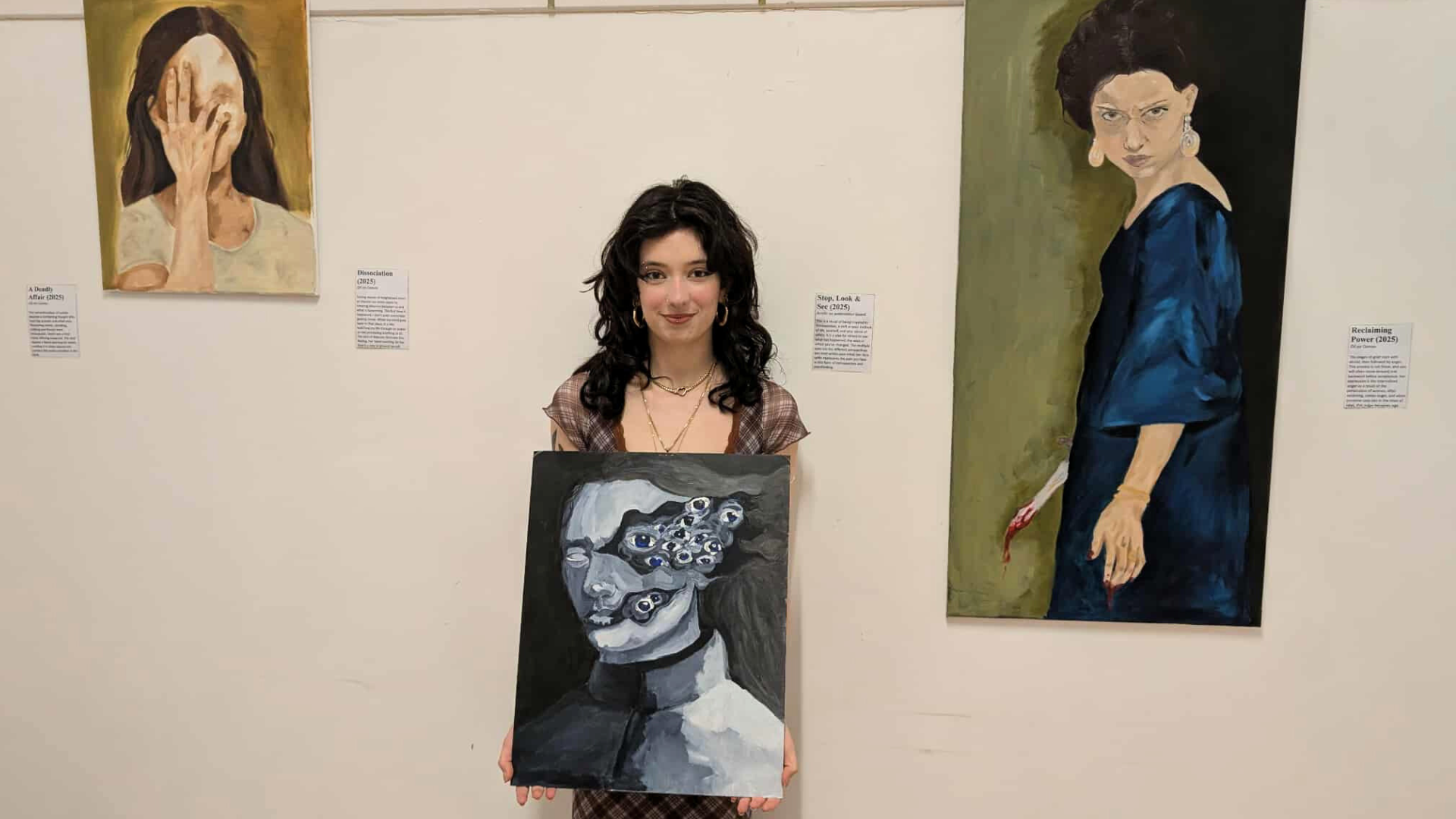The third time Iris Pavlidis was assaulted, she froze. This time it was by a friend of seven years after she dozed off one afternoon while they watched a movie. Afterwards came the feelings that so many survivors – more than there should be – know too well: shame, guilt, self-blame, and silence that suffocates.
But unlike most women, Iris had a talent. Painting. She harnessed it, transforming rape and rage into a body of work, Selves Laid Bare, now on display at the FiveNinetySix gallery in West Footscray from Saturday, September 20.
From that place of pain and survival, 22-year-old Iris created powerful art. She has transformed her suffering into canvases that don’t whisper; they rage, bleed, and demand to be seen.
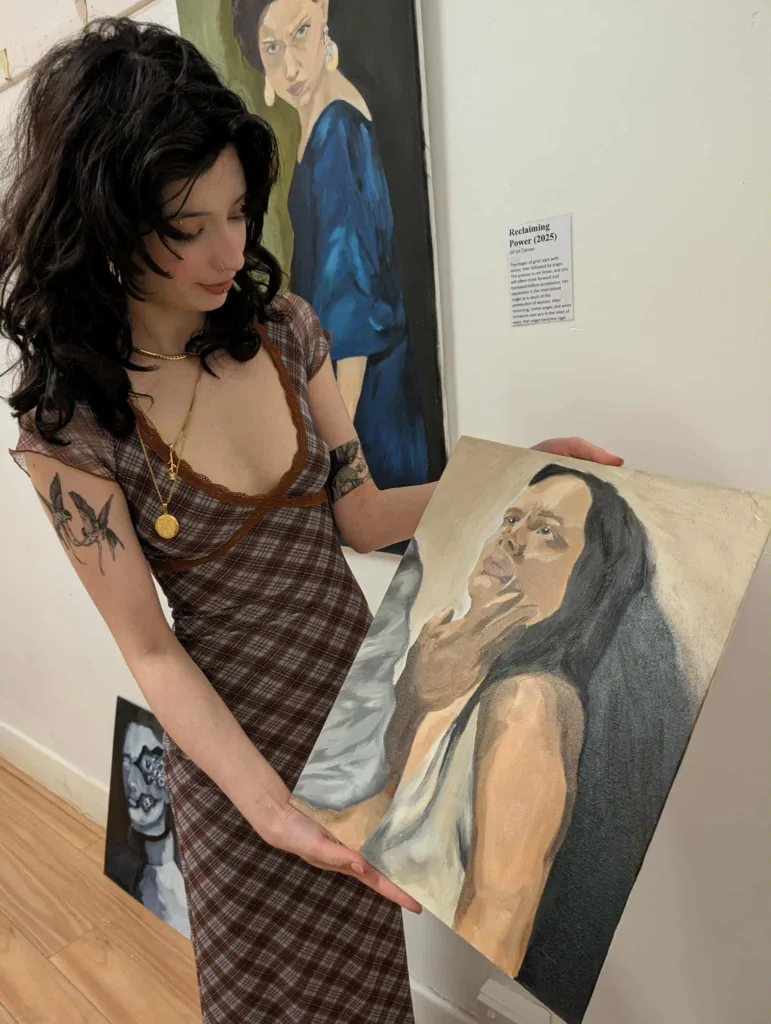
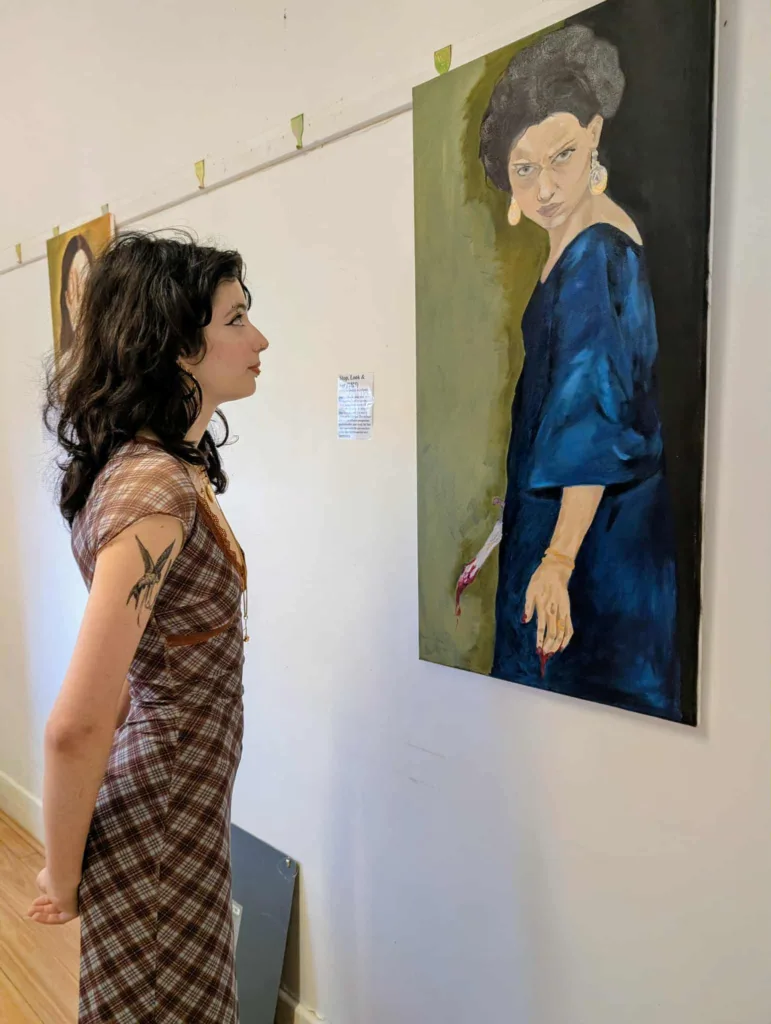
She hangs them alone, purposefully, the air sharp with must, slight scent of superglue, and something heavier: fear, grief, anger. Each work screams, Enough!
“I had to confront what happened to me, and I had to share it,” she says. “Because it’s not my fault. It’s never been my fault. It’s not the woman’s fault. Rapists need to think of their actions, not victims of rape.”
But Iris does not want to be seen as a victim. “I don’t want to be pitied,” she says, and looking at her, eloquently advocating for a fairer society, the last thing you think is “victim”.
The works come from fury at a system that failed not only her, but many women. One of her assailants was freed after a few months. Another, a neighbour she had once helped with money during a public holiday, used her kindness to stalk her after a transfer through Pay ID revealed her details.
“The police told me there wasn’t much they could do. To wait until he acted on his threats. But wouldn’t that be too late?” she says.
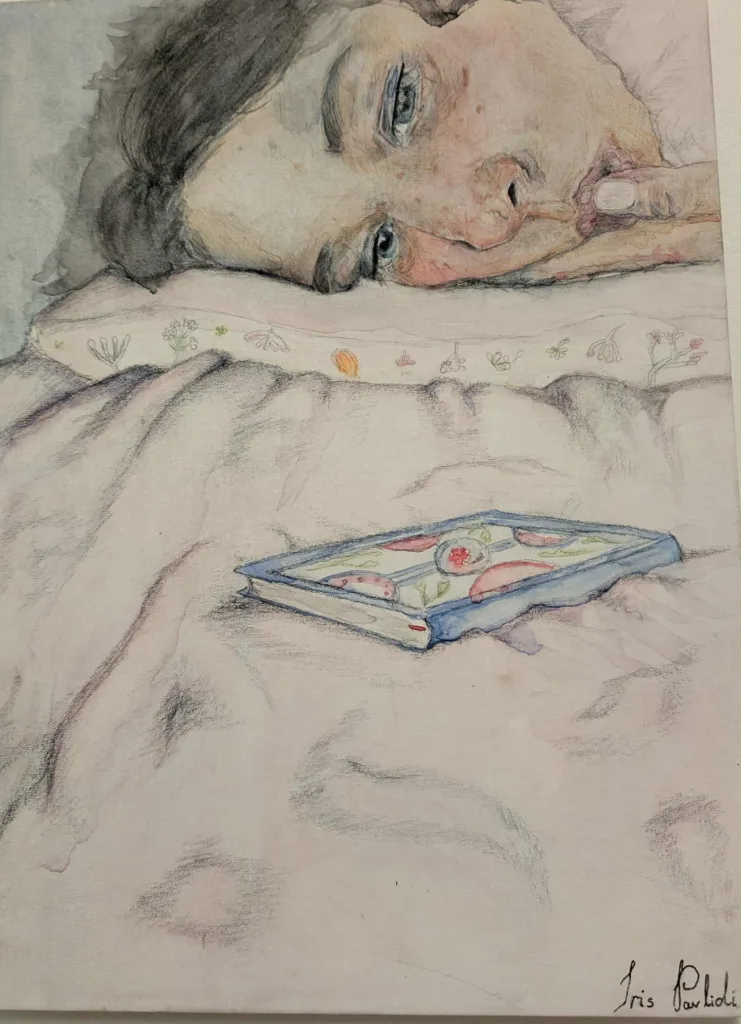
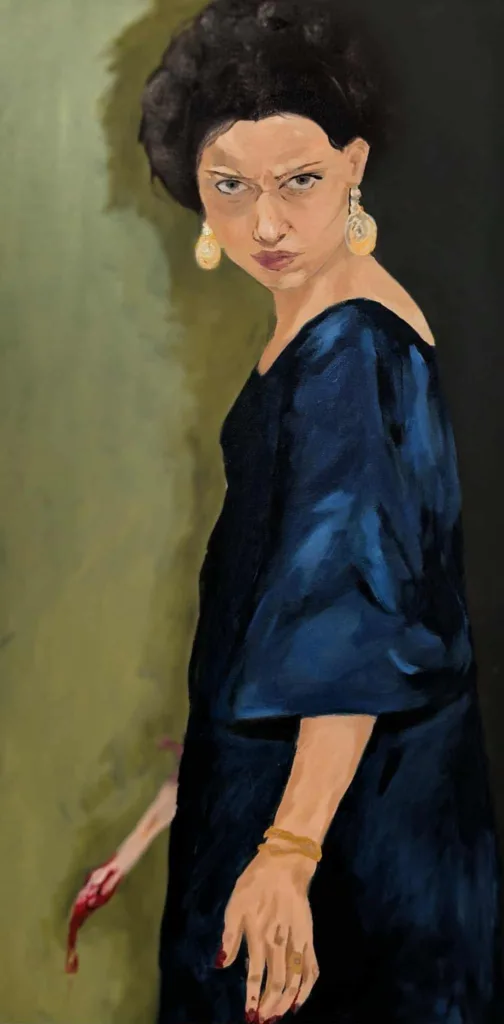
Art as defiance
Her 2025 series To Be a Woman is To Perform, is part of the collection currently on display. It was painted in less than a year, alongside working and studying Biomedicine at the University of Melbourne where she is pursuing her dream to be a doctor.
Unlike her empathetic and kind manner, her paintings don’t soothe; they erupt. “Every painting is a piece of me,” she says, adding that she photographs herself before working on each canvas.
Molly Malone Redefined recalls the Irish statue worn raw by strangers’ hands. “She started as a girl helping sell produce,” Iris says. “Over time, she became something for people to touch. That’s what it means to be a woman; people think you exist to perform.”
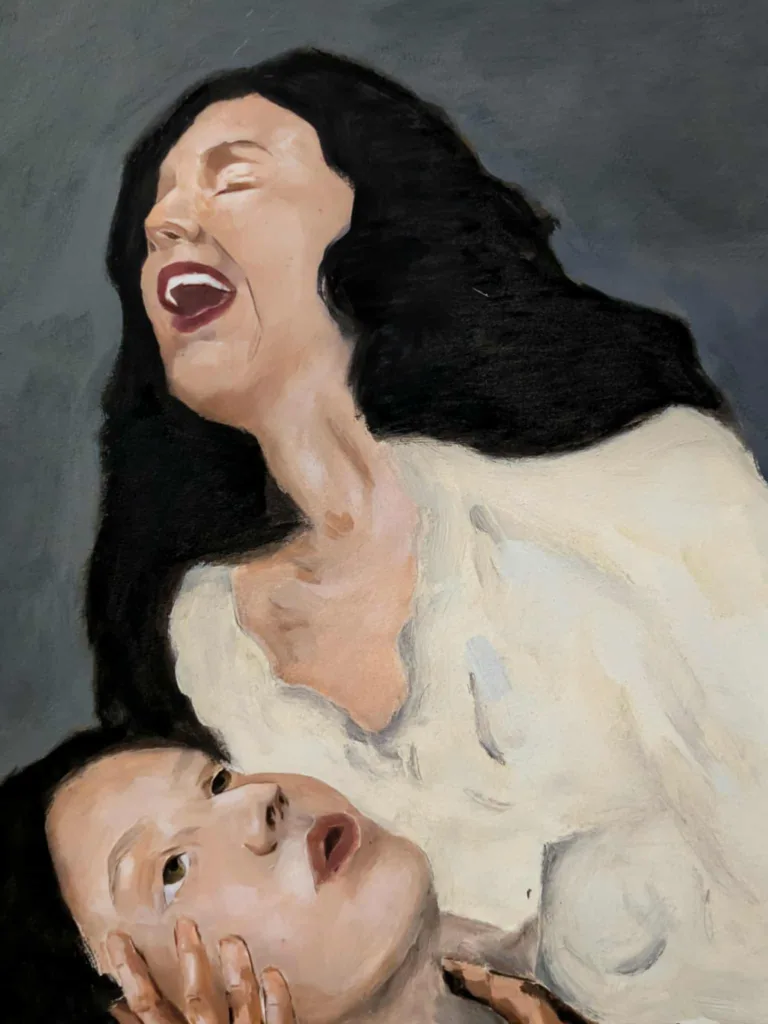
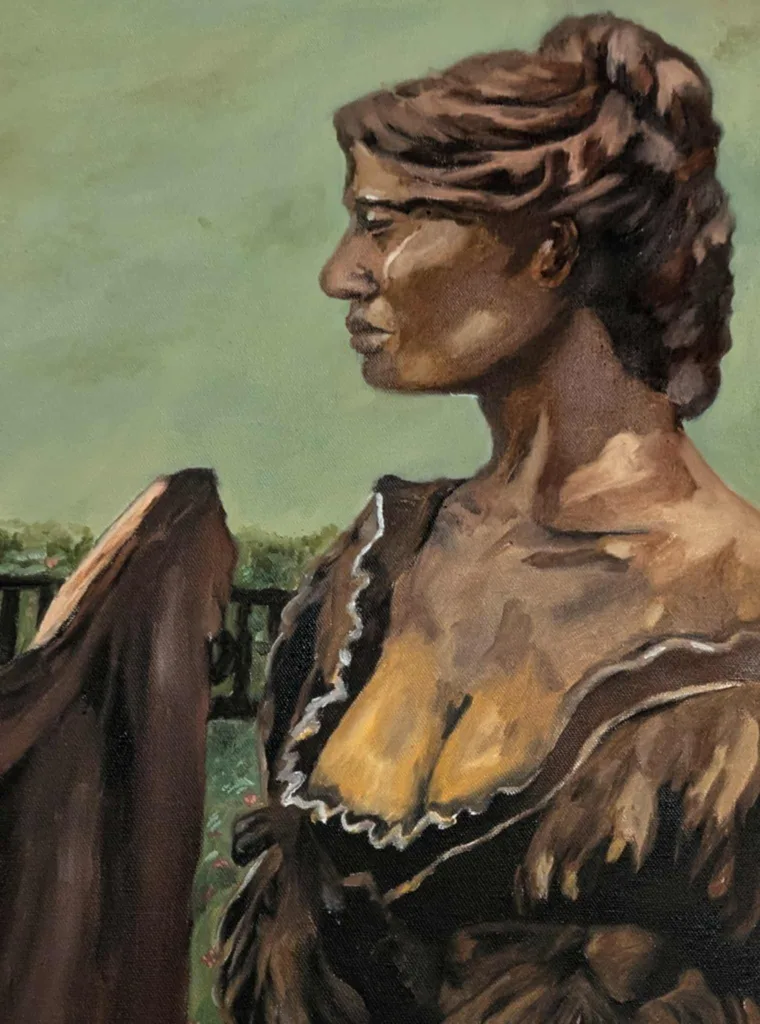
Flesh and Freedom charts grief in streaks of blood and vacant eyes. “Dissociation is the only way you cope,” she says. “You leave your body. The eyes go dead.”
Self-Critic borrows from her journals. A figure lies on a bed, stalked by the “blue feeling.” “It’s that voice that says: What else could I have done? Would that have changed the outcome?”
At the centre hangs Reclaiming Power. A young woman, wearing Iris’ earrings, clutches a bloody dagger, stepping out of shadow into light. “She’s walking forward, furious,” Iris says. “She’s me saying: I survived, and I’m not afraid to make you look at what you did.”
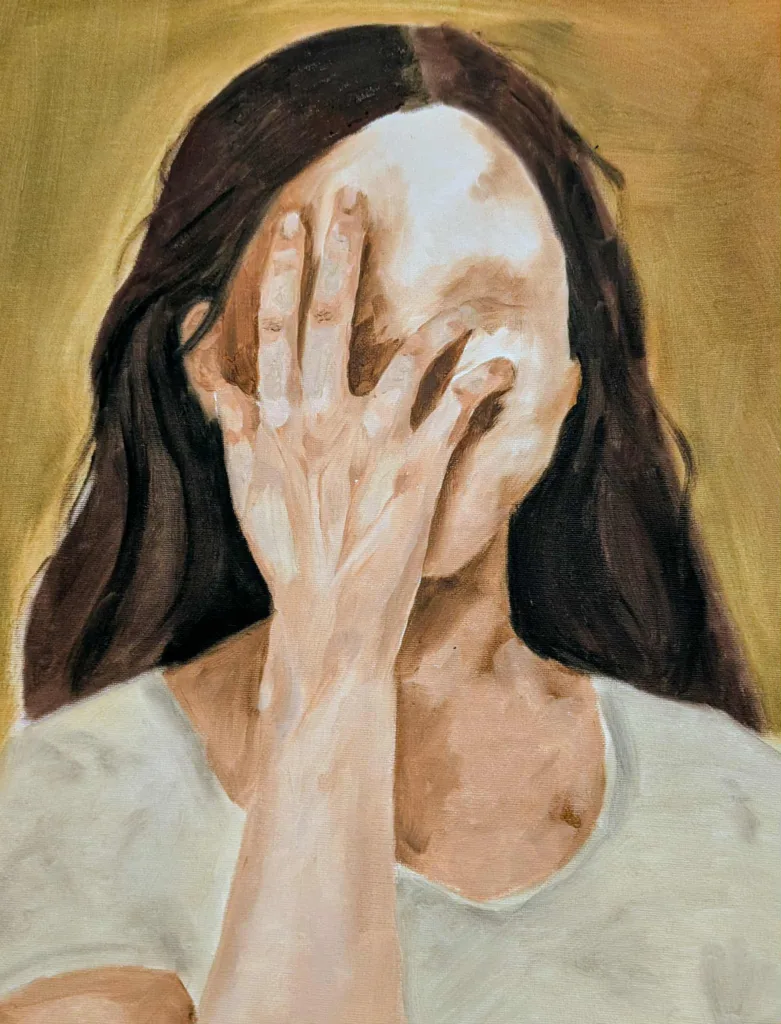
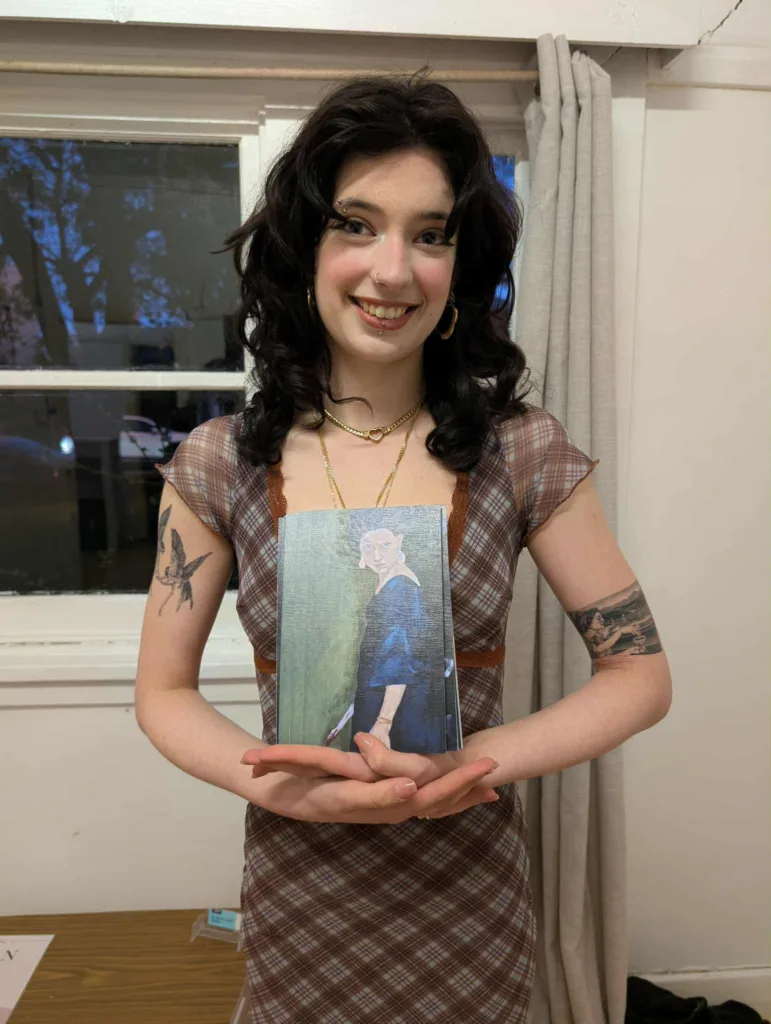

Rage, grief, liberation
Her journey with art began in childhood in Glyfada on the Athens Riviera, watching her mother sketch a mermaid, attempting to copy what she had created.
Drawing helped her escape into fantasy worlds because Athens is a place where kids grow up fast. She remembers fourth grade when a boy told her he would kill himself if she didn’t kiss him. “I was a ruthless little kid,” she laughs. “I told him, I don’t care.”
When Iris migrated to Melbourne with her mother, stepfather and sister in Year 6, art travelled with her. It became rebellion, refuge, resistance.
“After the third rape, art helped me feel angry,” she says. “I struggle to express myself in words, but here I can. I can make it visible.”
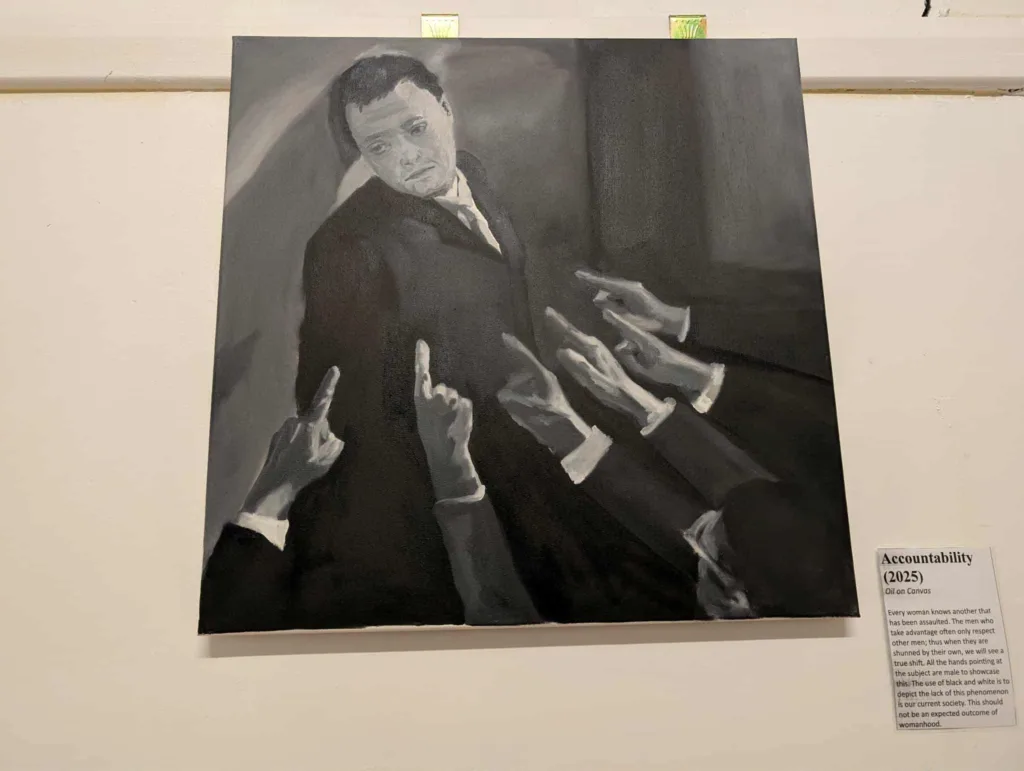
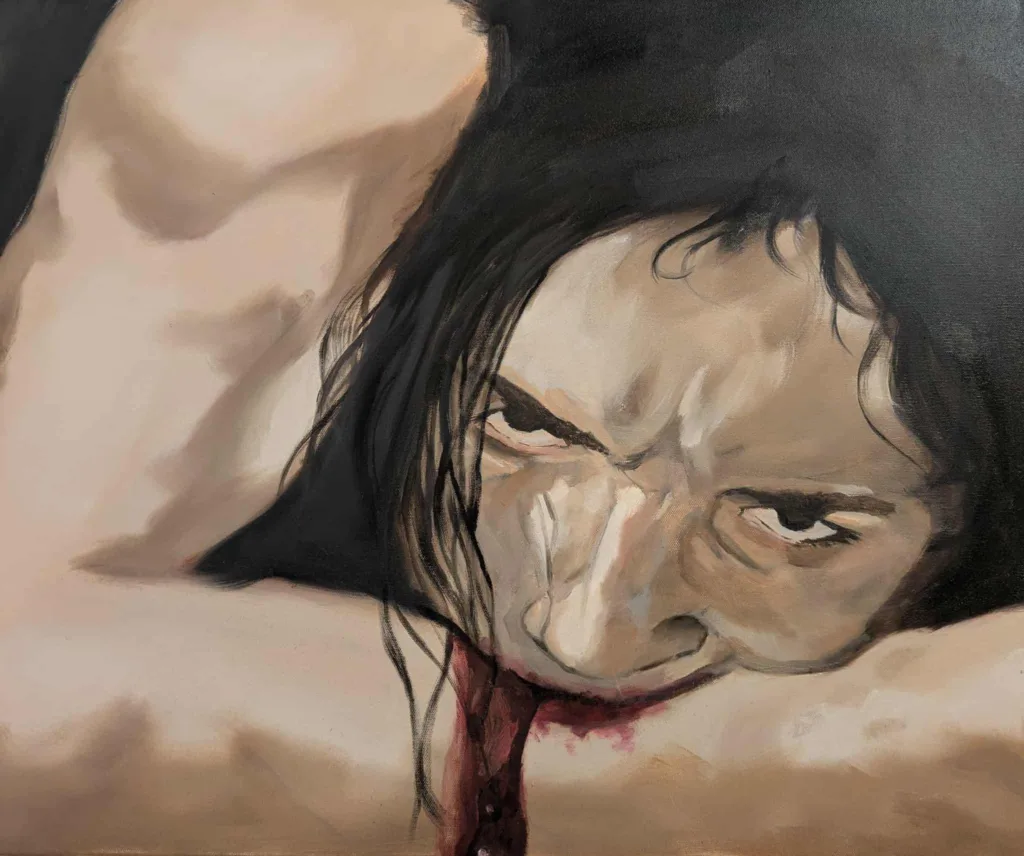
That anger now fuels her defiance. She reports, records, insists on accountability. “The system fails women,” she says. “That’s why men need to step up and hold each other accountable. We’ve been carrying this burden alone for centuries.”
Her courage resonates far beyond her own story. Women and a few men send her messages confessing secrets buried for decades. Some men of the gay community write to say their eyes have been opened about the experiences so many women face. “It breaks me, but it also reminds me why I’m doing this,” she says.
A reckoning
Through her art, trauma becomes testimony.
“I want women to walk in here and feel rage, grief, liberation,” Iris says. “To know they are not alone. I didn’t want to be blamed, asked why I froze, why I didn’t fight back. I wanted the focus to be on him, on what he did. That’s what needs to change.”
As she surveys the gallery, fragility and fury merge. Alone in this red-brick home, she claims her story loudly, defiantly.
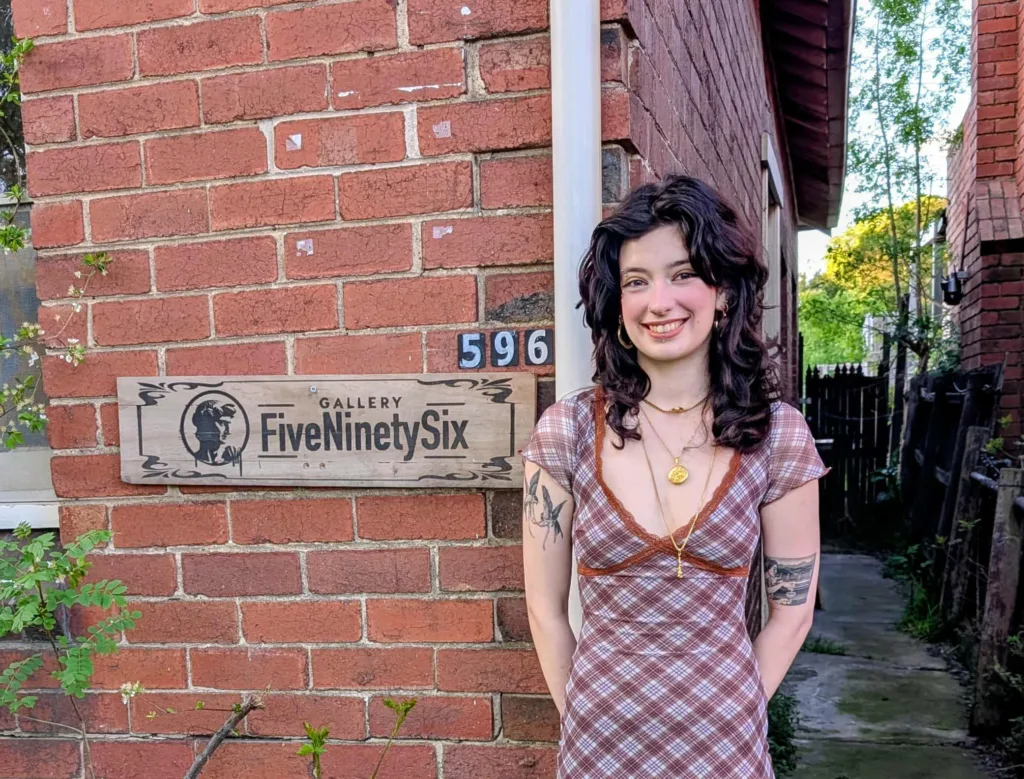
It’s not #MeToo. It’s a reckoning.
Her message roars through her art: “Your story matters. Your body matters. Your anger matters. And your silence no longer has to be the price of survival.”
Iris Pavlidis’ works are on display at Gallery Five Ninety Six (596 Barkly Street, West Footscray) from 5pm Saturday, September 20 through to October 26. An opening night party will include a poetry reading from 5-10pm.
